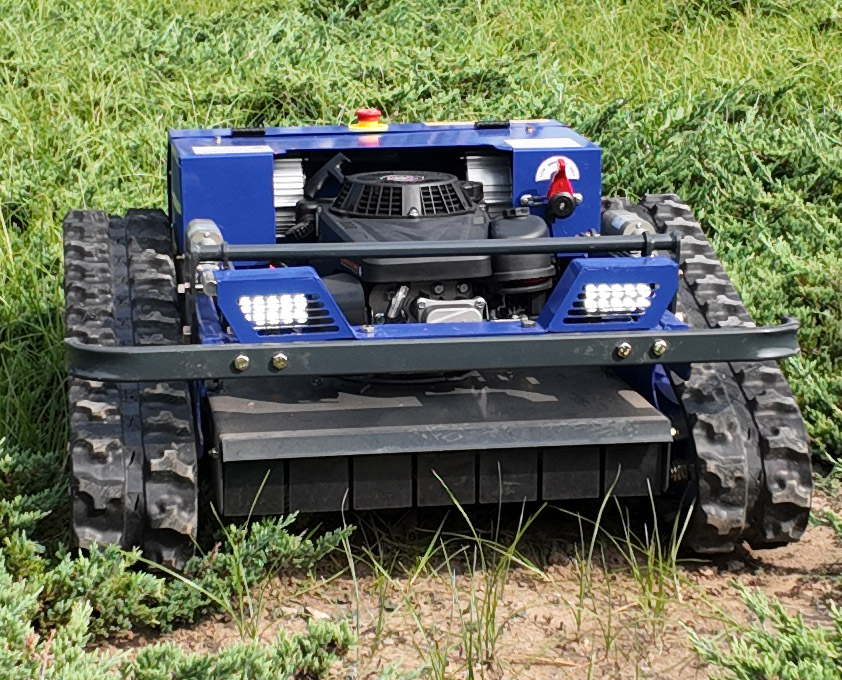Eco-Friendly Lawn Mowers Drive Global Sustainable Agriculture Practices
Across the world, farmers and agricultural professionals are under growing pressure to adopt sustainable practices that protect the environment, reduce emissions, and improve long-term soil health. Among the innovative solutions reshaping modern farming is the eco-friendly lawn mower. Once seen as a tool only for landscaping or turf management, new-generation low-emission, fuel-efficient, and electric mowers are now an integral part of sustainable agriculture programs. By reducing fuel consumption, noise, and chemical dependency, these machines help farmers achieve environmental goals while maintaining operational efficiency.
1. Why Eco-Friendly Lawn Mowers Matter
Traditional gasoline-powered mowers can be surprisingly heavy polluters. Over time, their exhaust contributes to greenhouse gas emissions and local air pollution. Eco-friendly lawn mowers—whether hybrid, battery-powered, or ultra-efficient diesel models—address these challenges by lowering carbon footprints, cutting noise levels, and enhancing energy efficiency. For large farms and estates, switching to such technology supports compliance with tightening environmental regulations and improves brand reputation among eco-conscious consumers.

2. Benefits for Sustainable Agriculture
Sustainable agriculture aims to balance productivity with environmental stewardship. Eco-friendly mowers offer several direct benefits:
– Lower Emissions: Electric and hybrid mowers produce fewer pollutants, supporting clean air initiatives.
– Reduced Fuel Costs: More efficient engines and battery systems save money over time.
– Soil Health Preservation: Mulching features return nutrients to the soil without chemical fertilizers.
– Noise Reduction: Quieter machines allow for operation near residential areas and wildlife habitats.
3. Technological Innovations Driving Change
Modern eco-friendly mowers incorporate advanced technology to maximize performance:
– Lithium-Ion Battery Packs: Deliver extended runtime and rapid recharging.
– Smart Sensors: Adjust blade speed based on grass thickness, reducing energy use.
– Modular Attachments: Allow one mower to handle mulching, bagging, or shredding without extra equipment.
– Telematics and GPS: Track usage, optimize routes, and schedule maintenance to extend machine life.
4. Real-World Applications in Global Agriculture
Eco-friendly mowers are no longer limited to golf courses or urban parks. Farmers across continents are integrating them into daily operations:
– Orchards and Vineyards: Quiet, low-emission mowing under trees and vines minimizes stress on crops.
– Livestock Pastures: Maintain grazing areas without disrupting animals or releasing harmful fumes.
– Agroforestry Systems: Manage understory vegetation in mixed tree-crop plots to improve biodiversity.
– Smallholder Farms: Affordable battery models help small farmers transition to sustainable methods.
5. Frequently Asked Questions (FAQs)
Q: How do eco-friendly lawn mowers reduce environmental impact?
A: By replacing gasoline with electricity or ultra-efficient engines, they significantly cut greenhouse gas emissions, reduce fuel spills, and limit noise pollution.
Q: Are electric mowers powerful enough for large farms?
A: Yes. Many modern models feature high-capacity batteries and commercial-grade motors. For very large areas, hybrid systems combine electric drive with efficient diesel backup.
Q: Do eco-friendly mowers cost more upfront?
A: Initial prices can be higher, but long-term savings from fuel, maintenance, and regulatory compliance often outweigh the extra investment within a few seasons.
Q: Can these machines help with soil health?
A: Absolutely. Many eco-friendly mowers include mulching functions that finely chop clippings and return organic matter to the soil, reducing the need for synthetic fertilizers.
Q: Are there incentives for adopting green mowing equipment?
A: In many countries, farmers can access tax credits, grants, or low-interest loans for investing in low-emission machinery as part of sustainable agriculture programs.
6. The Economic Case for Green Mowing Equipment
Beyond environmental benefits, eco-friendly mowers contribute to long-term cost savings. Reduced fuel consumption, lower maintenance needs (fewer oil changes, less engine wear), and improved equipment lifespan translate into a better return on investment. For large-scale operations, fleet management software can track usage to optimize schedules and further cut costs.
7. Supporting Global Sustainability Goals
International initiatives like the UN Sustainable Development Goals (SDGs) encourage farmers to adopt climate-smart practices. By integrating eco-friendly mowing into routine operations, agricultural businesses can demonstrate measurable progress toward SDG targets such as climate action, responsible consumption, and life on land.
8. Choosing the Right Eco-Friendly Lawn Mower
Selecting a mower that fits your farm’s unique needs requires considering:
– Power Source: Electric, hybrid, or efficient diesel based on acreage and charging infrastructure.
– Cutting Width: Match deck size to field conditions for optimal productivity.
– Terrain Compatibility: Look for heavy-duty wheels and stability features on uneven ground.
– Service Network: Access to parts and support ensures minimal downtime.
9. Looking Ahead: The Future of Green Mowing
The next generation of eco-friendly mowers is likely to be autonomous, data-driven, and integrated into larger farm management systems. Imagine self-navigating machines powered by solar-charged batteries, communicating with irrigation sensors to coordinate ground care schedules. This convergence of renewable energy, automation, and precision agriculture will further accelerate the shift to sustainable practices worldwide.
10. Conclusion
Eco-friendly lawn mowers are more than just a new type of equipment—they’re a symbol of agriculture’s transition toward sustainability. By reducing emissions, cutting costs, and enhancing soil health, they help farmers align profitability with environmental stewardship. As technology improves and adoption spreads, these machines will play an even greater role in shaping the future of global agriculture.
5. Get Your Personalized Solution Now
→ Call the selection hotline: +86 158 5359 8030 (also supports accessory customization inquiries).








